The Party and State always pay special attention to protecting, caring for and improving people's health. Many guidelines, policies and strategies have been issued, focused on implementation and achieved important results. Vietnam is highly appreciated by the international community in implementing the United Nations' sustainable development goals on health; Vietnam's essential health service coverage index is higher than the average of countries in the region; many indicators of people's health are superior to many countries with the same level of development.
However, the work of protecting, caring for and improving people's health still has limitations, inadequacies, difficulties and challenges. The protection of the living environment, regular health training, and ensuring food safety and nutrition have not received due attention. Preventive medicine has not received adequate investment and has not fully met the requirements for disease prevention and control; the capacity to produce and supply medicines, medical supplies and equipment is still limited and dependent on imported sources; the mobilization of human resources is still passive, especially in the event of a major epidemic.
Primary health care has not yet provided adequate primary health care services, screening for early detection of diseases for people has not been widely implemented, has not created trust for patients, leading to the situation of examination and treatment beyond the level of the level, even for common diseases, causing overload at the upper level. The quality of examination and treatment, the ability to access health services still varies between professional levels, regions, areas, and localities.
Healthcare for the disadvantaged has not received adequate attention. Medical human resources in some localities and grassroots health care have not met the requirements in terms of quantity, level and quality; there is no special treatment regime. The potential and strengths of traditional medicine have not been fully exploited. Scientific research, technology application and digital transformation in health care are still slow. Mechanisms, policies and treatment regimes are not strong enough to mobilize resources for health care development. Some cases of law violations, abuse and profiteering in the fields of medical examination, treatment, medicine and food have caused public outrage.
Faced with urgent practical requirements, the work of protecting, caring for and improving people's health needs to be strongly changed in awareness and action; at the same time, comprehensive innovation with breakthrough solutions to aim at building a healthy Vietnam, where all people receive health care, live long, live healthy, live healthily, improve physical fitness, awareness of health protection and proactive disease prevention in the whole society, contributing significantly to promoting the development of a rich, civilized and prosperous country in the new era.
From the above situation, the Politburo requests to thoroughly grasp and focus on implementing the following contents:
1. Health is the most precious asset of human beings, the most important foundation for everyone's happiness, for the survival of the nation and the prosperous and sustainable development of the country. Protecting, caring for and improving people's health is the goal, the driving force, the top political task, holding a priority position in development strategies and policies; it is the responsibility of the entire political system, of the whole society and all people.
2. People are the central subject, given the highest priority in building and implementing policies to strengthen protection, care and improvement of physical health, mental health, stature, longevity, and healthy years of life for comprehensive development; have full, fair and equal access to health services, with special attention paid to children, the poor, social policy subjects and ensuring gender equality. Raise awareness of disease prevention, healthy lifestyles, and build a culture of health among the people.
3. Pay attention to training and developing quality, balanced, ethical and competent health human resources to meet the requirements, tasks and satisfaction of the people; have preferential policies and special treatment throughout the process from training, recruitment, use, and promotion of the capacity and strengths of the health staff.
4. Strongly shift from the mindset of focusing on medical examination and treatment to proactive disease prevention, focusing on protection, care, and comprehensive and continuous health improvement throughout the life cycle. Correctly identify the position and role of preventive medicine, primary health care, and traditional medicine; focus on building, perfecting, and enhancing the capacity of preventive medicine and the primary health care system to ensure early, remote, and grassroots disease prevention, ready to respond to public health emergencies; prioritize the construction and synchronous investment in human resources, facilities, and equipment for commune-level health stations to meet requirements and tasks. Comprehensively improve the quality of health care services, develop specialized health care, and ensure health security.
5. Have breakthrough policies and mechanisms in mobilizing and effectively using all resources to improve the quality of work in protecting, caring for, and improving people's health; promote the development of science, technology, and digital transformation in healthcare; strongly reform healthcare finance, ensure the effectiveness and sustainability of health insurance policies; continue to implement the policy of state budget and health insurance to ensure payment for basic healthcare services, with users paying for the excess.
 |
| Photo : VOV |
1. Goals by 2030
Improve the physical strength, intelligence, stature and healthy life expectancy of the people. By 2030, increase the average height of children and adolescents from 1 to 18 years old by at least 1.5 cm; average life expectancy reaches 75.5 years, of which the number of healthy years reaches at least 68 years.
Reduce the burden of disease and control risk factors affecting health. The vaccination rate of vaccines in the Essential Immunization Program reaches over 95%. The rate of people regularly participating in physical activities increases by 10%. Strengthen control of risk factors affecting health such as alcohol, beer, tobacco and the environment from soil, water, air...
People have access to quality health services, aiming for comprehensive health care. From 2026, people will have free periodic health check-ups or screenings at least once a year, and will have an electronic health record to manage their health over their lifetime, gradually reducing the burden of medical costs. By 2030, people will be exempt from basic hospital fees within the scope of health insurance benefits according to the roadmap.
100% of commune-level health stations are invested in facilities, medical equipment, and human resources according to their functions and tasks; by 2027, there will be at least 4-5 doctors. Increase the rate of medical examination and treatment covered by health insurance at commune-level health stations to over 20%.
By 2026, health insurance coverage will reach over 95% of the population, and by 2030, universal health insurance coverage will be achieved; various types of health insurance will be developed.
2. Vision to 2045
Strive for a good quality living environment; people's health indicators and essential health care coverage indexes are on par with developed countries in the region and the world. People have an average life expectancy of over 80 years old, of which the number of healthy years has increased to over 71 years old; the average stature, physical strength and height of young people are equivalent to countries with the same level of development. A modern, equitable, effective and sustainable health system, with disease prevention as the top priority, meets the increasingly high and diverse health care needs of the people.
1. Strongly innovate thinking and actions in leadership, direction, and organization of the work of protecting, caring for, and improving people's health.
Party committees, party organizations, cadres and party members must thoroughly understand and fully understand the particularly important role of protecting, caring for and improving people's health, which is the focus of socio-economic policies. Integrate and prioritize health protection, care and improvement indicators in strategies, planning, plans and policies for socio-economic development.
Raise awareness, habits, lifestyles, and responsibilities of each citizen and the entire society in proactively practicing, protecting, and improving health. Promote the movement of the entire population to proactively take care of their health, and build a health culture among the people. Unanimously choose World Health Day on April 7 every year as "National Health Day".
Actively prevent and strictly control health risks to create a healthy living environment. Minimize the consumption of products harmful to health, especially cigarettes, alcohol, beer, addictive substances, which are harmful to human health. Focus on mental health care, create a balanced living, working and studying environment, reduce stress and pressure. Focus on planning, investing, building and improving the efficiency of using public cultural and sports facilities and public spaces to serve people's health training. Deploy synchronous solutions to ensure order, traffic safety, occupational safety and hygiene, prevent and fight fires, accidents, injuries and domestic violence. Build models of safe and healthy communities, schools and workplaces.
Effectively implement national target programs and strategies to improve the intelligence, physical strength, stature, and longevity of Vietnamese people, the National Nutrition Strategy, and the School Health Care Program. Nutrition in disease prevention must be focused on throughout the life cycle, according to each age, stage of development, and health status, ensuring a balance in diet, nutritional composition, and meal quality, appropriate to the physical condition, culture, and economic conditions of Vietnamese people.
Regularly carry out propaganda, education, consultation, and dissemination of knowledge on health protection, care, and improvement, especially for children, youth, and the elderly. Promote physical education in schools; incorporate health and nutrition education into the curriculum at appropriate levels. Have policies to improve population quality, ensure adaptation to population aging, and increase birth rates to achieve sustainable replacement fertility.
Strongly innovate the management thinking of the health sector, create a transparent and accountable management environment associated with administrative procedure reform, decentralization and decentralization. Specify the responsibilities of all levels, sectors, localities, state management agencies and medical units and facilities; prevent and combat abuse, policy exploitation and violations of the law in the work of protecting, caring for and improving people's health.
2. Timely perfecting institutions, focusing on improving the capacity of the health system, especially preventive medicine, primary health care, and promoting the strengths of traditional medicine.
Complete the synchronous institutional framework and effectively implement legal regulations on protecting, caring for and improving people's health in the period 2026 - 2030. Focus on completing and promulgating laws on Population, Disease Prevention, Food Safety, Medical Equipment, Traditional Medicine, etc., ensuring timely resolution of difficulties and obstacles, meeting practical requirements.
Arrange a streamlined and efficient health system, in line with the 3-level government model, ensuring timely connection and support between professional levels of the health system. Continue to arrange and transfer a number of hospitals under the Ministry of Health to provincial management. The Ministry of Health manages a number of specialized, high-tech, leading hospitals to carry out professional guidance tasks, train high-quality human resources, conduct scientific research, transfer technology, coordinate disease prevention and control, public health emergencies, natural disasters, catastrophes, and health security.
Strengthen and improve the capacity of the preventive health system in a modern direction, with sufficient capacity to monitor, warn early, control epidemics in a timely manner and proactively organize and implement disease prevention and control activities. Strengthen the implementation of the Expanded Immunization Program in terms of both scope and vaccination subjects. Implement health management and care according to the life cycle. Encourage people to proactively access counseling services, pre-marital health check-ups, prenatal and newborn screening, and screening for some common and dangerous diseases suitable for each age group and target group. Improve the capacity of the system of testing, inspecting, and controlling factors affecting health, the quality of living, studying, and working environments, the quality of medicines, cosmetics, food, medical equipment, and the quality of health services.
Improve the quality and effectiveness of grassroots healthcare. Focus on perfecting the functions, tasks, and organizational structure of commune-level health stations according to the model of public service units, ensuring the provision of basic and essential services on disease prevention, primary health care, medical examination and treatment, and social care services. Strengthen and improve the synchronous capacity of commune-level health stations in terms of human resources, ensuring the structure and sufficient number of doctors according to functions and tasks; maintain the team of village and residential group health workers, village midwives, and population collaborators according to functions and tasks; ensure basic facilities, medicines, and medical equipment, especially in remote, isolated, disadvantaged, border, and island areas. In the period 2025 - 2030, each year, localities will rotate, transfer, and mobilize at least 1,000 doctors to work for a limited time at commune-level health stations; Supplementing regular doctors at commune-level health stations, by 2030 there will be enough doctors according to their functions and tasks. Each commune-level health station will be invested with enough basic medical equipment according to regulations. Implementing health care according to the principles of family medicine, strengthening connections and support between technical expertise levels in the health system, focusing on supporting commune-level health stations. Regional health centers are organized according to the health care needs of local people, providing full and timely disease prevention services and inpatient and outpatient examination and treatment at the basic level. Prioritizing investment in developing health facilities in remote areas, ethnic minority areas, and disadvantaged areas with limited access to health care services.
Develop specialized healthcare to meet practical requirements and international integration. Promote links between hospitals, research institutes, training facilities and businesses to develop high-tech, specialized medicine; focus on developing a number of high-quality specialized medical centers at regional and international levels to attract and develop medical tourism in Vietnam, reducing the number of people going abroad for medical treatment. Each province and centrally-run city has at least one specialized hospital; a geriatric hospital or a general hospital with a geriatric department. Develop facilities for the elderly. Continue to improve the rehabilitation service system; effectively combine medical facilities and facilities for the elderly.
Strengthen the combination of military, civilian and police medical forces to promptly respond to public health emergencies and health care for people in remote, ethnic minority and disadvantaged areas. Build and deploy a nationwide emergency response system; effectively combine medical forces, police, military and related sectors, ensuring people have quick and timely access to emergency services right at the scene.
Promote the potential and strengths of traditional medicine. Strengthen state management, improve the capacity of the traditional medicine system. Combine traditional medicine and modern medicine in human resource training, disease prevention, medical examination and treatment. Promote the dissemination of knowledge and techniques of traditional medicine to the community. Have a mechanism to promote the potential of medicinal herbs, promote planning and develop areas for growing medicinal herbs that meet standards. Preserve traditional knowledge and promote the multi-purpose value of medicinal herbs, traditional remedies and methods. Focus on improving the quality of traditional medicine, especially traditional medicines and medicinal herbs to reach the same level as countries with developed traditional medicine.
3. Improve medical ethics, develop quality and synchronous medical human resources, meet patient satisfaction and international integration
Comprehensively innovate the style, spirit, and attitude of serving the people and patients, associated with improving the professional capacity of the medical staff, and well implementing President Ho Chi Minh's wish "A good doctor must be like a mother". The team of doctors and medical staff must strive to have deep medical theory, good medical skills, good medical ethics, and dedication to their profession, worthy of the trust and honor of society. Review and perfect regulations on professional ethical standards of medical staff; innovate and strengthen medical ethics education and legal knowledge in training in the health sector; regularly foster and raise awareness of self-study, practice, cultivate medical ethics, codes of conduct, communication skills, and patient counseling. Improve the working environment, ensure safety, reduce pressure on medical staff; innovate the way of managing the provision of medical services according to output quality, meeting the satisfaction of both patients and medical staff. Propaganda, launch a widespread emulation movement, build, praise, reward and replicate advanced models of medical ethics; enhance the sense of responsibility and labor discipline, resolutely rectify and overcome negative manifestations at medical facilities, strictly and promptly handle acts of abuse against medical staff. Strengthen the prevention and fight against corruption, negativity and waste in the medical field.
Developing health human resources to ensure uniformity in quantity, quality, and structure, especially human resources serving primary health care, preventive health care, remote, disadvantaged, especially disadvantaged, border, and island areas. Resolutely and effectively implement the Project on training and fostering doctors to create a source for commune-level health stations, especially for communes in remote, disadvantaged, border, and island areas. Prioritizing the arrangement and mobilization of resources, having outstanding mechanisms and policies to develop health human resources. Focusing on investing in developing a number of high-quality health training facilities at regional level. Implementing specialized postgraduate training in the national education system in the health sector managed by the Ministry of Health.
Implement preferential policies commensurate with the view that medicine is a special profession that requires special training, employment, and treatment. Doctors, preventive medicine doctors, and pharmacists are ranked from level 2 of the recruited professional title. Implement special and outstanding preferential policies for medical staff directly working in the field at commune-level health stations and preventive medical facilities; increase the level of preferential allowances to at least 70% for those who regularly and directly work in the field at commune-level health stations and preventive medical facilities; 100% for people who regularly and directly work in medical profession at commune-level health stations, preventive medical facilities in ethnic minority and mountainous areas, areas with difficult or especially difficult socio-economic conditions, border areas, islands, the fields of psychiatry, forensic medicine, forensic psychiatry, emergency resuscitation, pathology and some other special subjects suitable to economic and social development conditions.
Strengthen international cooperation and integration in research, application, transfer of technology, science, technology, human resource training in the medical field and exchange, promote the strengths and potentials of Vietnamese healthcare. Prioritize attracting foreign investment, high-quality intellectuals and experts in the medical field from abroad to invest and work in Vietnam; send excellent students and medical staff for advanced training in countries with strengths, with funding from scholarship programs.
4. Promote health financing reform and develop effective and sustainable health insurance policies
The State budget ensures expenditure tasks to meet basic and essential requirements for the work of protecting, caring for and improving people's health, playing a leading role in ensuring finance, investing in facilities and medical equipment for grassroots health care, preventive medicine, health care for people belonging to social policy subjects, some special subjects and in ethnic minority areas, mountainous areas, areas with difficult or especially difficult socio-economic conditions, border areas, islands, the fields of psychiatry, forensic medicine, forensic psychiatry, emergency resuscitation, pathology and some special subjects.
Prioritize and ensure annual increase in state budget expenditure for public health care in accordance with requirements and tasks. The state budget ensures regular expenditure and investment for primary health care and preventive medicine. There is an appropriate financial mechanism to mobilize all social resources to invest in the public health service sector.
Implement periodic health check-ups or free screening for people at least once a year according to priority groups and schedules. From 2026, organize coordination between periodic health check-ups, free screening, health check-ups for students, occupational health check-ups, health check-ups for workers according to regulations and health insurance examination and treatment to provide free medical check-ups and complete the creation of electronic health records for all people. Have appropriate support policies for out-of-hospital emergency transportation costs for some social policy subjects.
Gradually implement the policy of exempting hospital fees, first of all for social policy beneficiaries, the disadvantaged, low-income people and some other priority beneficiaries within the scope of health insurance benefits according to the roadmap. From 2026, gradually increase the rate, payment level, and expenditure for disease prevention, diagnosis, and early treatment of some diseases and priority beneficiaries according to the roadmap from the Health Insurance Fund to reduce the financial burden on patients, in line with the increase in health insurance contributions according to the provisions of law from 2027. The state budget and health insurance fund pay for some disease prevention services, chronic disease management, periodic health check-ups and screening examinations according to professional requirements at the initial and basic medical examination and treatment levels according to the appropriate roadmap.
Improve management efficiency, sustainable use of the Health Insurance Fund, reform administrative procedures, save management costs, increase spending on medical examination and treatment. Pilot and diversify health insurance packages, supplementary health insurance according to people's needs, link health insurance with health insurance provided by insurance companies. Encourage the development of diverse types of health insurance.
Proactively mobilize forces, build coordination mechanisms, and coordinate medical human resources, ensure vaccines, reserve drugs, supplies, and medical equipment, promptly respond to requirements for disease prevention and control, emergency medical events, and ensure medical security.
5. Breakthrough in scientific and technological development, innovation and comprehensive digital transformation in healthcare
Strongly promote comprehensive digital transformation of healthcare. Complete the construction of healthcare databases that ensure standards of connection, sharing and synchronous communication. Effectively operate electronic health records, electronic medical records, and electronic prescriptions; synchronously connect and manage people's health data according to the life cycle.
Implement initiatives to improve digital health knowledge. Strengthen inspection and prevention of misinformation, ensuring that people have the necessary knowledge and skills for health care. Urgently build a national health database, a system connecting data in the health sector and health insurance. Develop a mechanism for sharing, exploiting and using data effectively, ensuring security and safety. Have a mechanism to support the effective attraction of information technology human resources and digital transformation in the health sector.
Prioritize investment to implement breakthrough solutions for science, technology development, and innovation in the health sector according to Resolution No. 57-NQ/TW, dated December 22, 2024 of the Politburo. Promote the application of artificial intelligence (AI), blockchain, big data, and the Internet of Things (IoT) in the health sector to enhance transparency and efficiency in the provision and use of health services. Form interdisciplinary and specialized research centers in scientific research, combine institutes and schools, improve the capacity of research centers, testing, high technology, key laboratories and scientific research facilities in the health sector, especially nanotechnology, gene technology, regenerative medicine, nuclear medicine, etc.
Focus on developing the pharmaceutical and medical equipment industry, ensuring self-sufficiency in vaccines, drugs, and medical equipment. Diversify the supply of raw materials and equipment, take advantage of domestic raw materials and resources, improve capacity, promote research, and transfer technology for the production of drugs, biological products, pharmaceutical ingredients, medical equipment, and vaccines. Form a pharmaceutical industrial park by 2030. Give the highest priority to the health sector in using the National Science and Technology Development Fund, focusing on research and production of new drugs, high-tech drugs, standardized herbal medicines, modern dosage forms, vaccines, and biological products for disease prevention and treatment. Research and build new technology vaccine production centers, contributing to the prevention of tropical diseases, emerging and re-emerging diseases.
6. Promote the development of private healthcare, mobilize and effectively use all resources for healthcare development.
Synchronously and effectively implement solutions in Resolution No. 68-NQ/TW, dated May 4, 2025 of the Politburo, strongly promote the participation of the private economic sector, mobilize social resources in people's health care, especially investment, development of high-quality health care services, disease prevention services, scientific research, training of medical human resources, production of drugs, vaccines, medical equipment, inspection, testing, and calibration. In particular, encourage the development of large-scale private hospitals with specialized technical levels on par with developed countries; health care facilities in ethnic minority and mountainous areas, areas with difficult and especially difficult socio-economic conditions, border areas, islands; care facilities for the elderly, people with disabilities, and children; Participate in disease prevention and control, ensure health security... Build a breakthrough mechanism to unblock, mobilize and effectively use all social resources for programs to improve the physical strength, intelligence and stature of Vietnamese people.
Encourage and facilitate private investment activities and public-private partnerships in the health sector in accordance with the law. Prioritize clean land funds and land recovered from projects, allow flexible conversion of land use purposes to land for health care; focus on site clearance and allocation of clean land for construction projects and development of health care facilities. Do not collect land use fees, reduce land rent and land tax for domestic health facilities. Do not apply corporate income tax to public and private health facilities operating not for profit. Prioritize the allocation of surplus state agency headquarters after reorganization to health facilities; allow the application of the form of leasing state-owned works to private health facilities in accordance with regulations. Strengthen inspection and supervision, prevent policy exploitation, wasteful and ineffective use, loss of resources, and strictly handle violations.
1. The Party Committee of the National Assembly leads and directs the amendment, supplementation and improvement of laws to create breakthroughs in the work of protecting, caring for and improving people's health, giving priority to reviewing and approving a number of laws, resolutions, and the National Target Program on health care, population and development for the period 2026 - 2035 at the 10th Session of the 15th National Assembly; strengthening supervision of the implementation of the Resolution's formulation and organization to meet the requirements of socio-economic development in the new situation.
2. The Government Party Committee shall lead and direct the development of a plan to implement the Resolution; coordinate with the National Assembly Party Committee to fully institutionalize the policies and guidelines stated in this Resolution and prioritize the allocation of sufficient resources for implementation; if necessary, submit to the National Assembly for promulgation a specialized Resolution on mechanisms and policies to effectively implement the Resolution; organize, direct and assign the work of reporting and evaluating the situation, progress and results of the Resolution's implementation according to functions and tasks.
3. The Party Committee of the Fatherland Front and Central organizations lead and direct the development of programs and plans to guide, mobilize and mobilize people to implement the Resolution, promote the role of supervision and social criticism, participate in the development of laws, mechanisms and policies on breakthrough solutions in the work of protecting, caring for and improving people's health.
4. The Central Military Commission and the Central Public Security Party Committee coordinate with the Party Committee of the Ministry of Health to develop a program to implement the Resolution in protecting, caring for and improving the health of officers, soldiers, people and subjects under their management.
5. Provincial Party Committees, City Party Committees, Party Committees directly under the Central Committee, and Party Committees organize the study and dissemination of the Resolution to cadres and Party members; develop programs and plans to implement the Resolution. Local Party Committees and authorities direct, urge, inspect, and supervise the implementation of tasks and solutions in the locality according to regulations.
6. The Central Propaganda and Mass Mobilization Commission shall preside over and coordinate with relevant agencies to develop a propaganda plan to implement the Resolution.
7. The Government Party Committee shall preside over and coordinate with the Central Policy and Strategy Committee, the Central Party Office, the Party Committees directly under the Central Committee and the Provincial and Municipal Party Committees to monitor and evaluate the implementation results of the Resolution and report to the Politburo.
This resolution is disseminated to the Party cell.
Source: https://baodaklak.vn/chinh-tri/202509/bo-chinh-tri-ban-hanh-nghi-quyet-ve-cham-soc-nang-cao-suc-khoe-nhan-dan-8501b2a/








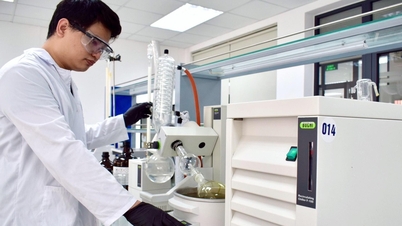





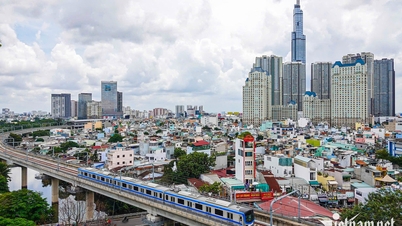

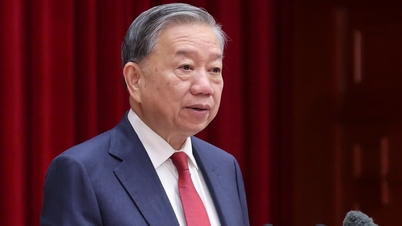


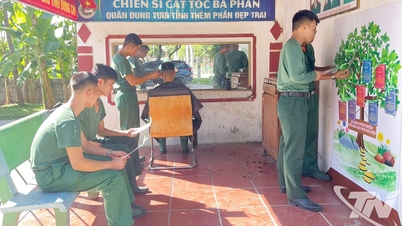



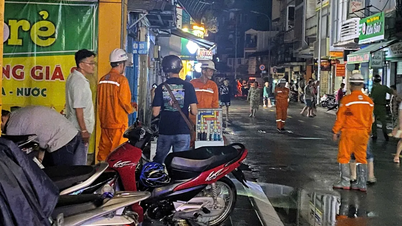

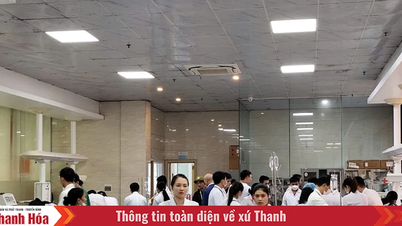

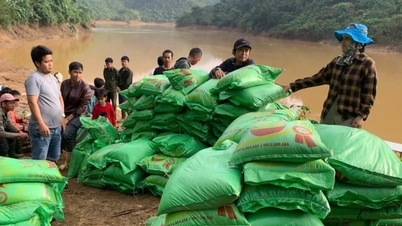

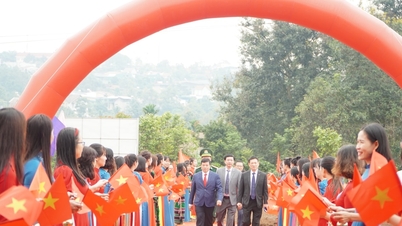




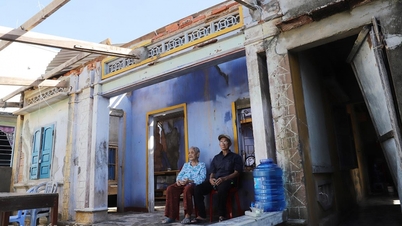
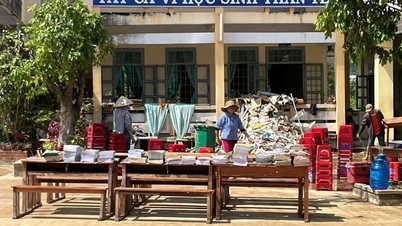
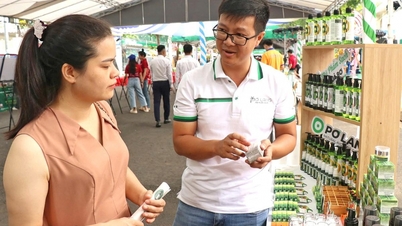
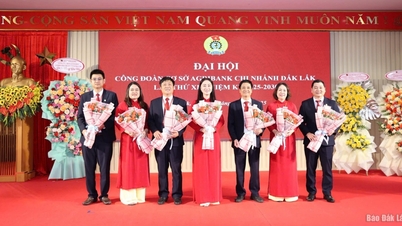













![[Video] Hue Monuments reopen to welcome visitors](https://vphoto.vietnam.vn/thumb/402x226/vietnam/resource/IMAGE/2025/11/05/1762301089171_dung01-05-43-09still013-jpg.webp)







































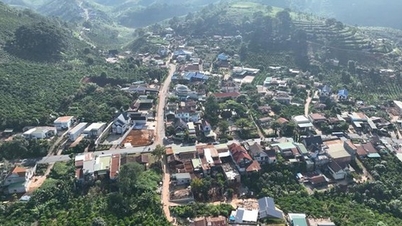

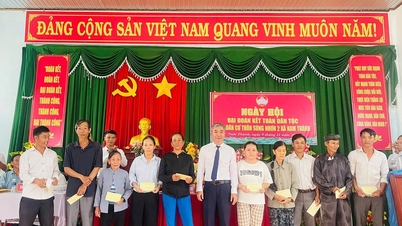

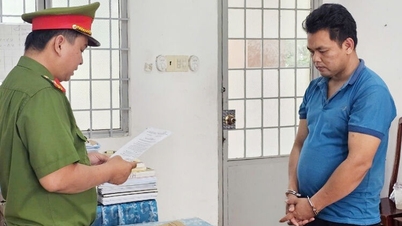

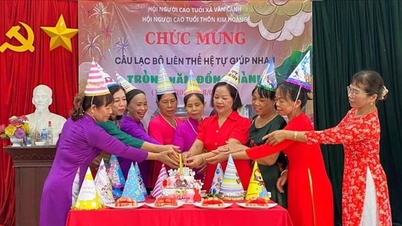

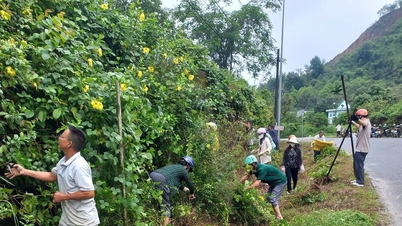
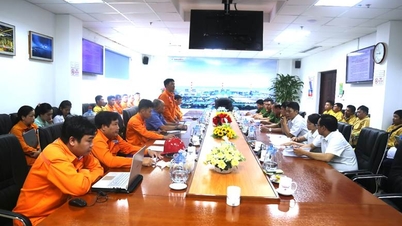

![Dong Nai OCOP transition: [Part 2] Opening new distribution channel](https://vphoto.vietnam.vn/thumb/402x226/vietnam/resource/IMAGE/2025/11/09/1762655780766_4613-anh-1_20240803100041-nongnghiep-154608.jpeg)











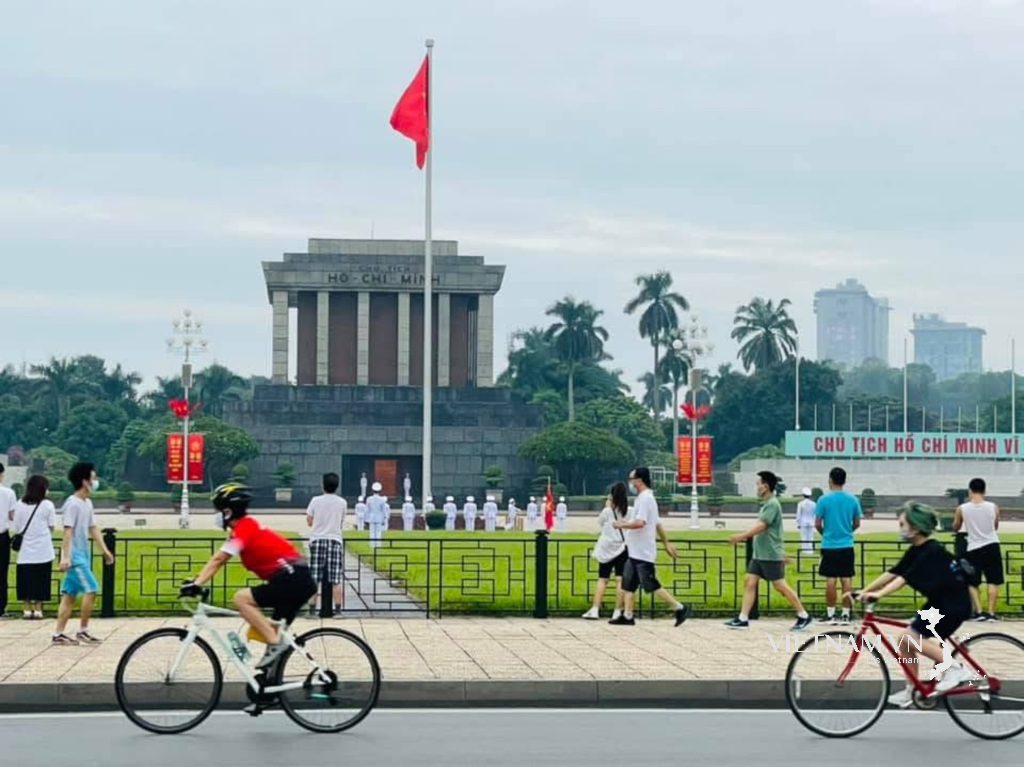

Comment (0)